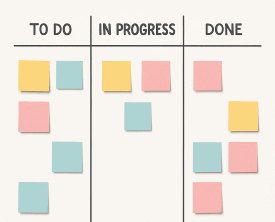Scheduling Software and 5 Top Benefits
By Mark Ballance, Resource Scheduling Specialist at Schedule it Ltd since 2010.

No matter what your business is, or how it operates, you’ve probably got some resources right? After all, a resource can be just about anything: equipment, rooms, even people can be considered a resource; it’s not called Human Resources for nothing.
But, keeping track of your internal and external resources can be difficult and overly time-consuming, especially if you’re doing this manually. Fear not, we have lots of experience in helping businesses schedule and manage all their resources better and we’ve got a roundup of our top 5 benefits of using software to schedule.
Why software for scheduling?
It’s better. Fact. Days gone by, a handful of people in an office might have been responsible for setting and keeping the schedules of company resources - booking holidays, tracking employee meetings, allocating training and meeting rooms, or simply keeping track of where various pieces of equipment are at any given time.
In these good old days (and we still see this in modern offices too), this resource scheduling will have been very much a manual process. But times have changed. Keeping data very siloed or in places with limited accessibility, such as whiteboards, shared excel spreadsheets, sticky notes, or even notepads left in office drawers is messy.
Running this operation manually takes far more time and effort because of many reasons:
So, what’s the answer? Well, it’s got to be software of course. We’ve never lived in a better age for running operations, such as scheduling, than today, where we have access to all sorts of information from just about all of our devices attached to the Internet.
But the benefits go deeper than just being able to view a schedule at 2AM from your cosy bed. Below are our top 5 benefits of using software to schedule your business’ resources.
1. Keeping everyone on the same page
Switching to a centralised, online or desktop, software scheduling system, team members can throw away their messy manual methods of trying to keep a handle on where resources are, and who has what booked and when.
All members in the team can quickly log into one system and check, at a glance, what’s going on. What’s more, a software system will be able to notify certain members of changes automatically should a schedule alter, meaning no more excuses for missing meetings!
2. Using the tools you already know and love with integrations
Some people prefer working in different ways and with different tools. Emails, for example: do you prefer Outlook, or Gmail, Thunderbird, or online webmail? Office programs: is it Microsoft all the way, or something modern and experimental, such as Quip, or Asana?
Getting the best from a team sometimes means letting them leverage their own ways of working in order to get the job done. Any decent scheduling software will let them do just this by providing a set of integration points for individuals and their chosen calendar tool.
So, whether it’s Google Calendar or MS Outlook, your scheduling software should play nicely with other popular programs and allow you to see updated schedules however you like.
3. Access from wherever, whenever
Although some offices still prefer to work with notepads, sticky notes and whiteboards, their biggest drawback is their limited access outside of, or even across, the office.
If you have field sales reps, engineers, or home workers, or even a large office complex with distances between buildings, taking a look at progress and keeping abreast of current schedules means having to physically check in with the office. Perhaps worse, even trying to keep a second version of a schedule in your own records...bad for accuracy!
Networked and online scheduling software can help give team members access to the important data they need, no matter where they are, or when they wish to view it.
And, as with benefit number one, because all the data is synchronised, this wherever, whenever, and it will always be with the most current version.
4. Reports, reports, reports
Everybody’s busy these days, especially those in charge of running a business. Top level executives, management, and team leaders need to be able to pull in useful, relevant information and gain an overview of what’s happening in their part of the business.
Of course, if you’re doing this manually, someone has to physically crunch the numbers, or use some sort of spreadsheet witchcraft to generate columns, rows, and impressive bar charts. What’s more, this data is usually only as relevant when it was created, showing a snapshot in time.
By using software to manage and schedule your resources, especially software that is centralised or based in the cloud, you’ll be able to run accurate reports whenever and wherever you like.
In-built reporting tools offer huge advantages over static, manual reports:
5. Boost productivity to boost profits
All this manual effort and laborious processes lead to high utilisation of people and manpower. By moving as much labour-intensive work into a more streamlined and efficient system, you’ll save bags of time.
And, when it comes to business, time definitely still equals money. Just think, even if you only saved 4 hours a week from moving your scheduling to a software system, that’s almost half working day you’ve gained back. Over a month, that’s 2 whole days of time you’ve won, which you can devote to working on your business, networking, doing other paying work or whatever you need to use it for.
The bottom line: the more time you can free up to complete actual paying work, instead of busy admin tasks, the more profit your business will be able to make.
Try Schedule it Free
No credit card required. Capterra/G2











